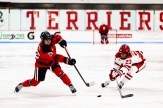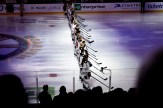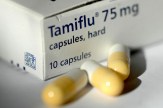NHL referees don’t hate your favorite team

NHL fans often jeer referees, mocking “bad” calls and missed crosschecks. But their boos may be misplaced, according to a new study by Northeastern economist Imke Reimers and her research colleagues at West Virginia University.
In a study published in July in the journal Contemporary Economic Policy, the researchers found that the more time NHL referees spend officiating a particular hockey team, the less likely they will be to call a penalty against that team.
The findings run contrary to a common perception among some NHL die-hards that particular referees actively dislike fans’ favorite teams, calling ticky-tacky penalties against them in an effort to make it harder to win. This is especially evident, some fans say, when specific referees have officiated a large number of games for certain teams, giving the refs ample time to develop animosity toward chippy players.
But in the NHL, familiarly does not breed contempt. Instead, Imke and her research partners found a strong inverse relationship between referees’ team-specific experience and the number of penalties called against those individual clubs. In particular, they discovered that for each additional season of team-specific experience, referees decreased the number of penalty minutes assessed to that team by nearly one per game. For all the non-puck heads out there, that’s roughly 40 fewer two-minute minor penalties for every 82-game stretch.
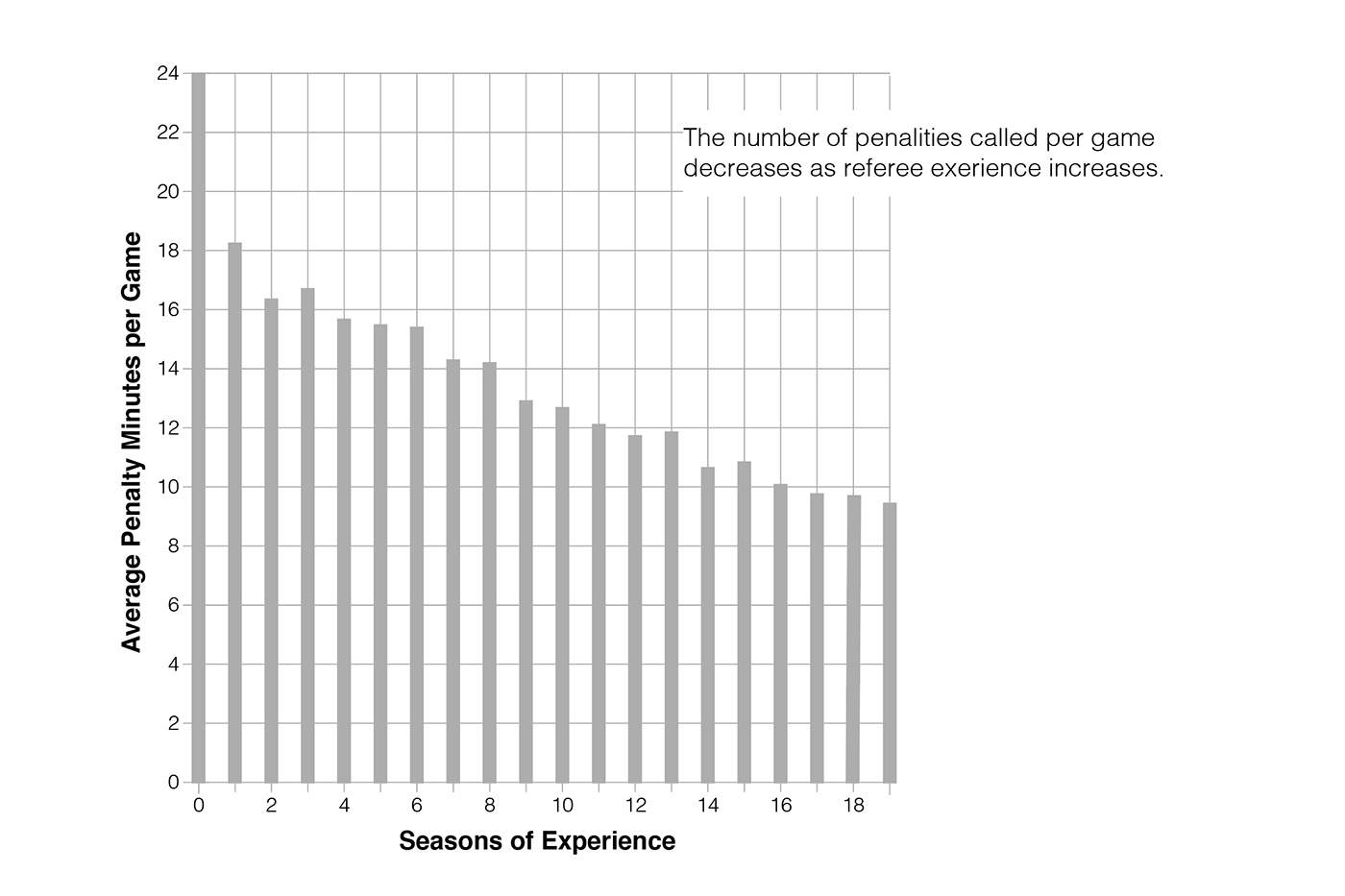
Referees with 10 years of experience call 2.6 fewer penalty minutes per game than rookie referees. Graph by Lia Petronio.
The researchers collected referee and penalty data for all regular season NHL games from Jan. 1, 1996 to Dec. 11, 2015. While they found that referees with more experience are less likely to call penalties in general—referees with 10 years of experience call 2.6 fewer penalty minutes per game than rookie referees—they discovered that team-specific experience plays a much larger role in penalty-calling than overall NHL experience. Whereas each season of team-specific experience reduced the number of penalty minutes by 0.972 per game, each season of overall game experience decreased penalty minutes by only 0.068 per game—roughly three two-minute minor penalties per season.
According to the researchers, this proved that an often-elusive phenomenon called regulatory capture exists among NHL teams and referees. It’s industry-speak for what occurs when a regulatory agency comes to protect the agenda of the industry it was formed to regulate. In this case, the referees are the regulators and the NHL teams are the regulated.
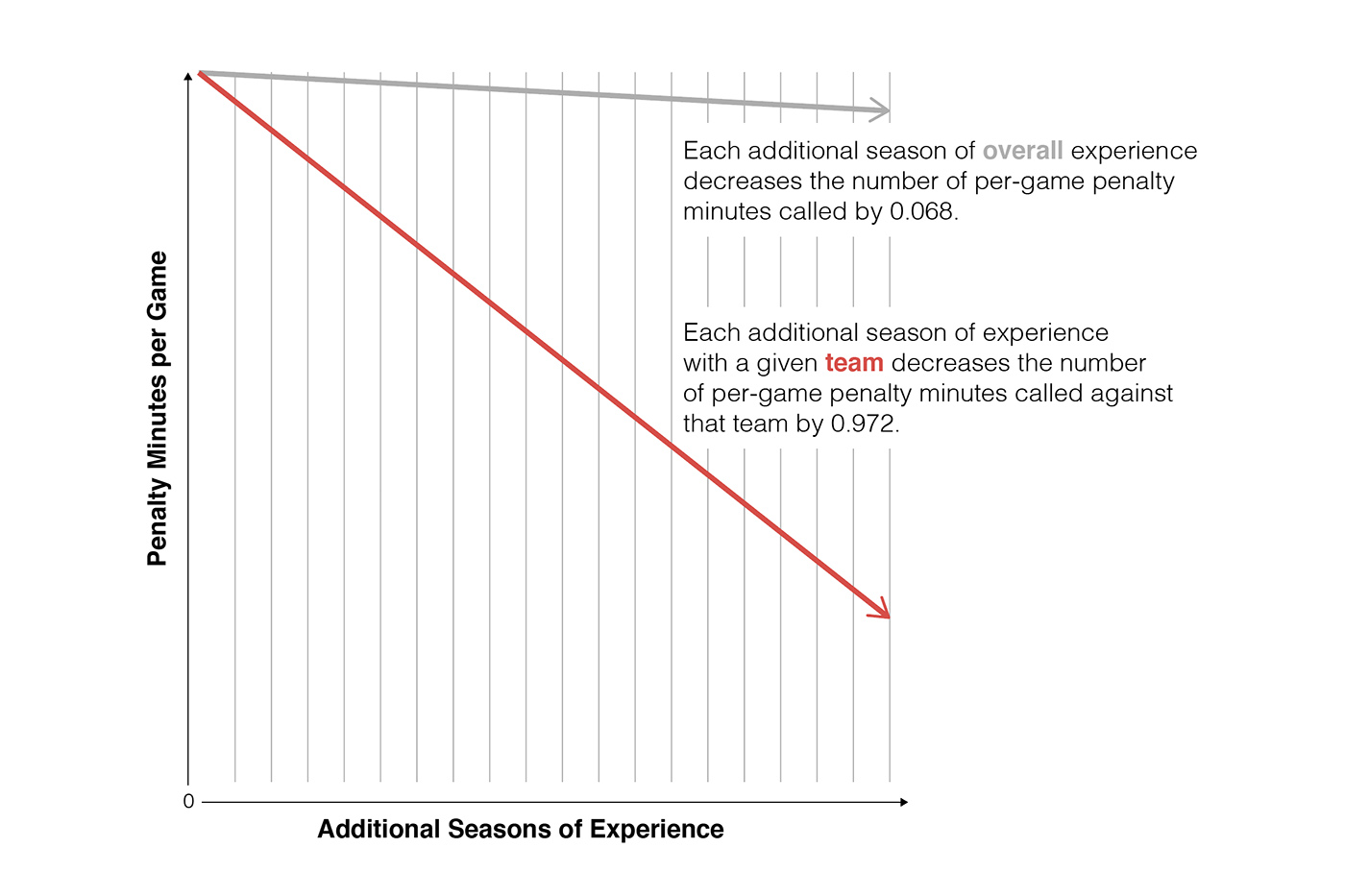
For each additional season of team-specific experience, referees decrease the number of penalty minutes assessed to that team by nearly one per game. Graph by Lia Petronio.
“There’s been a lot of talk of regulatory capture in fields like banking, finance, and criminal justice, but it’s always been very hard to observe,” said Reimers, assistant professor of economics. “In this research, we overcame that problem by analyzing an environment where the behavior of both the regulator and the regulated are publicly available.”
In business, health, finance, and other fields, regulatory capture is said to have a “corrosive influence on our policymaking system,” stacking the deck in favor of special interests, preventing competition, and inhibiting innovation. In the NHL, said Reimers, who played college tennis at the University of Nebraska, “the presence of regulatory capture tips the scales in favor of the less penalized team, as those teams that are assessed fewer penalties have a higher likelihood of winning the game.”
